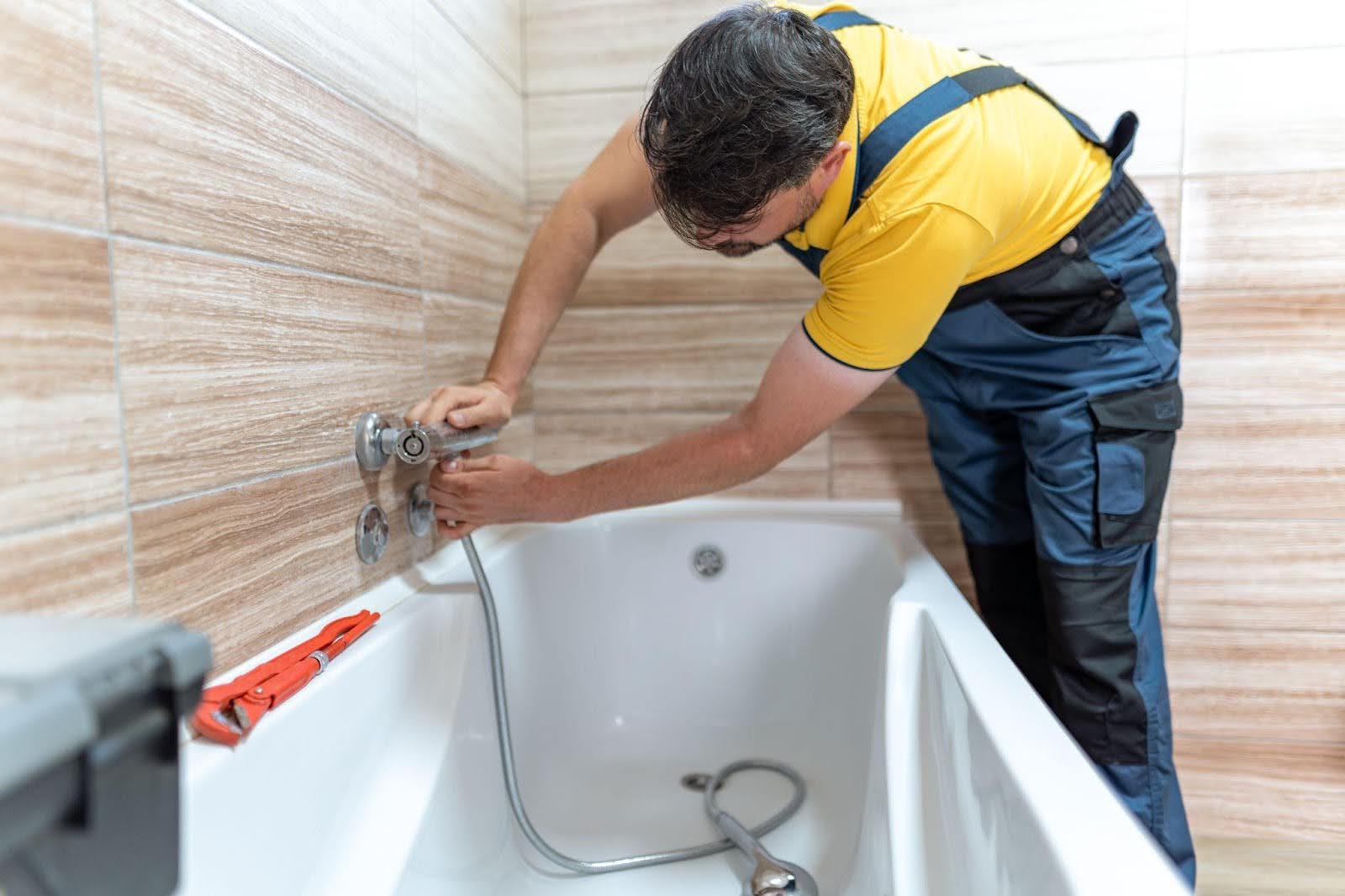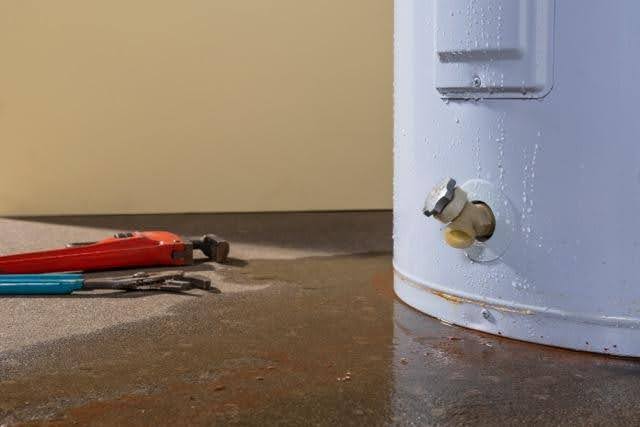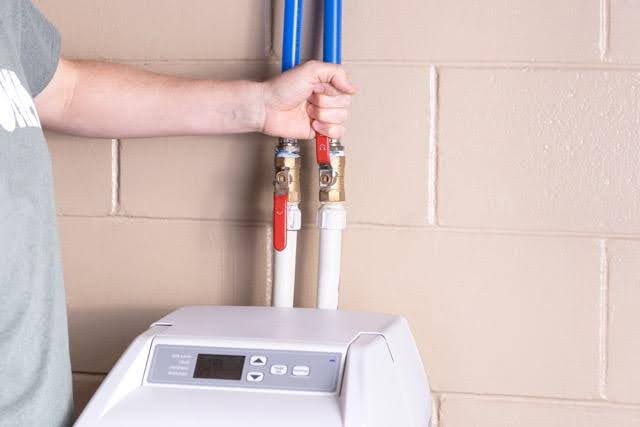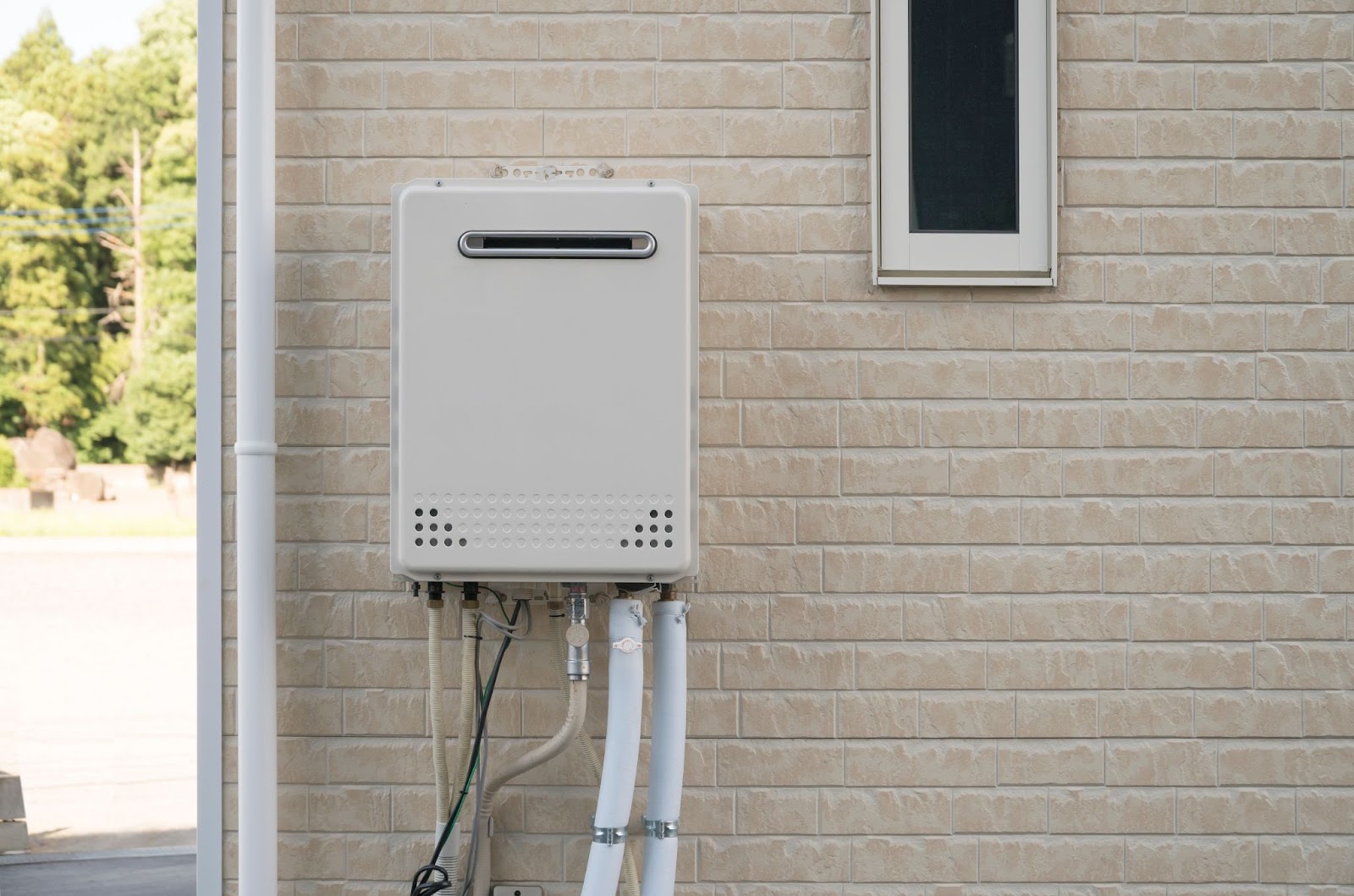You may be dealing with hard water if you’ve ever noticed chalky white buildup on your faucets, soap that won’t lather, or dishes that never seem fully clean.
While it might seem minor, it can cause severe long-term damage to your home, from clogged pipes and inefficient appliances to skyrocketing utility bills.
Fortunately, effective solutions will help protect plumbing from hard water.
In this blog, we’ll explore how hard water wreaks havoc on your plumbing, appliances, and home value — and what you can do to protect plumbing from hard water today.
Table of Contents
ToggleWhat is hard water?
Hard water contains high levels of dissolved minerals — primarily calcium and magnesium. These minerals get picked up as water flows through underground limestone, chalk, or gypsum deposits. The more minerals the water contains, the “harder” it is.
While it isn’t harmful to drink, it may cause serious issues in your home over time. You might notice that soap doesn’t lather well, white spots appear on dishes, or crusty buildup forms on faucets. These are all signs that those minerals are being left behind as the water evaporates.
Over time, this buildup — known as limescale — can affect your plumbing, appliances, and even your water pressure.
Signs you have hard water
There are several signs that may indicate you’re dealing with hard water in your home:
Spots on dishes and glassware
If your clean dishes come out of the dishwasher with cloudy spots or white residue, it’s likely due to mineral deposits left behind by hard water.
Soap scum buildup
You may notice a filmy layer of soap scum on your shower doors, tubs, sinks, or bathroom tiles. This happens because the water reacts with soap, making it less effective and harder to rinse away.
Dry skin and dull hair
Hard water strips your skin and hair of natural oils, leaving you with dryness, itchiness, or lifeless hair even after showering.
Stiff or faded laundry
Clothes washed in this water may feel rough or fade over time, as the mineral content interferes with detergents and fabric softeners.
Reduced water pressure
Mineral buildup inside your pipes may restrict water flow, leading to noticeable drops in water pressure at faucets and showerheads.
If you’re experiencing one or more of these symptoms, having your water tested is a good idea.
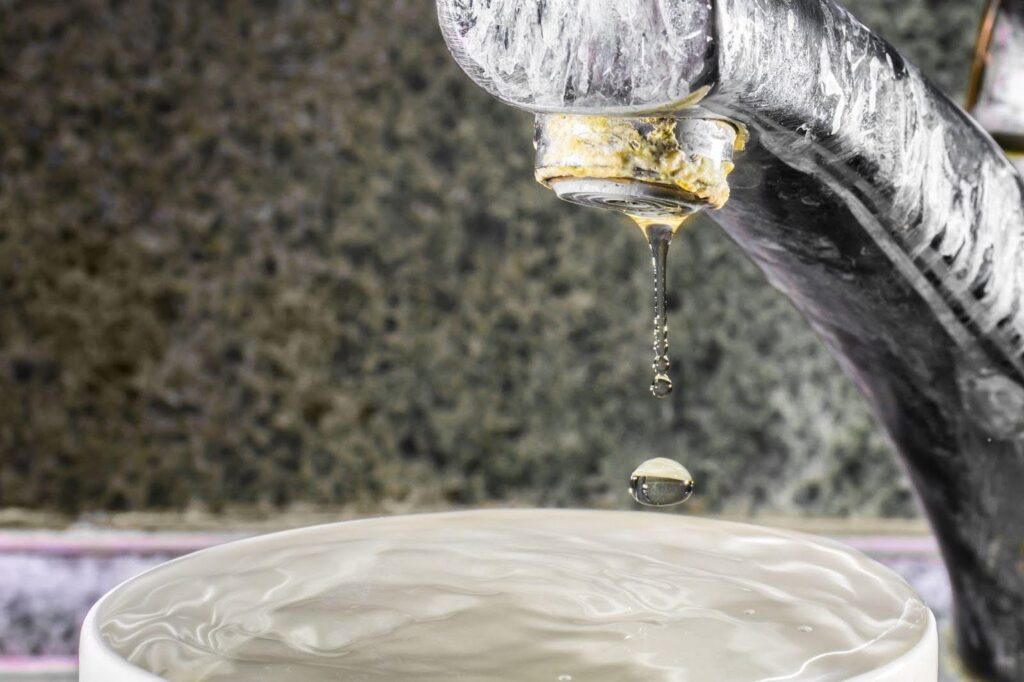
The problems hard water causes
Hard water can quietly cause widespread damage throughout your home, especially in three major areas: your plumbing, appliances, and utility costs. Let’s take a closer look at how:
Plumbing issues
Minerals build up inside your pipes over time. Scale buildup may narrow the diameter of your pipes, restrict water flow, and increase the pressure in your plumbing system.
Eventually, this leads to clogs, corrosion, and leaks, requiring expensive repairs or even full pipe replacements. Fixtures like faucets and showerheads also become coated with mineral deposits, which look unsightly and impact performance.
Appliance damage
Appliances that rely on water — like dishwashers, washing machines, and especially water heaters — suffer. Mineral buildup inside these machines reduces efficiency and forces them to work harder to function properly.
In water heaters, for instance, scale forms around the heating elements, making it harder to heat water and shortening the unit’s lifespan. The same goes for coffee makers, ice machines, and humidifiers — hard water causes wear and tear much faster than normal.
Higher utility bills
As appliances and plumbing systems become less efficient, energy and water usage increase. Water heaters need more energy to heat through the insulation of mineral deposits, and clogged pipes and fixtures can lead to longer showers, slower dishwasher cycles, and extra rinse loads.
Over time, this inefficiency translates into noticeably higher energy and water bills — costs that could be avoided with proper water treatment.
Long-term costs and home value impact
While the day-to-day inconveniences may frustrate you, the long-term costs and impact on your home’s value can be even more significant.
Over time, hard water causes gradual wear on major systems and surfaces, leading to higher maintenance expenses, appliance replacements, and decreased efficiency throughout your home.
For instance, constant mineral buildup can shorten the lifespan of your water heater, dishwasher, and washing machine. Frequent repairs or early replacements become more likely, adding hundreds or even thousands of dollars to your long-term homeownership costs.
Plumbing systems also suffer, with scale buildup increasing the risk of leaks and major pipe damage.
These problems also affect your home’s resale value. Visible limescale, corroded fixtures, or poorly functioning appliances may raise red flags for prospective buyers and home inspectors.
Even if you plan to stay in your home long-term, hard water damage can limit comfort, reduce efficiency, and create ongoing headaches that could have been prevented with proactive treatment. Addressing it early is about protecting your home as a long-term investment.
Beyond damaging your home, hard water can also harm the environment. When your appliances run less efficiently, they consume more energy to get the job done — whether that’s heating water, washing clothes, or running a dishwasher.
Additionally, hard water makes it harder for soaps and detergents to lather, leading many people to use more cleaning products than necessary. This increased use contributes to chemical waste and runoff affecting local water supplies and ecosystems.
Installing a water softener protects your plumbing and appliances and reduces energy consumption, making it a smarter, more sustainable choice for your household.
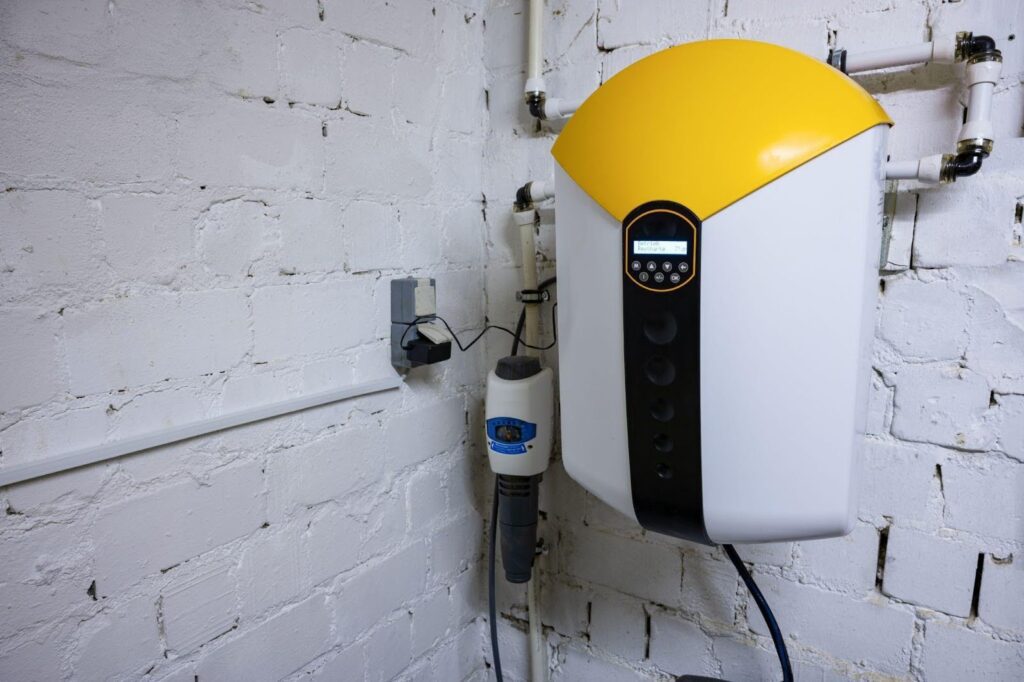
How to protect your home
Protecting your home starts with taking proactive steps to reduce mineral buildup and prevent long-term damage.
Install a water softener system
The most effective solution is to install a water softener system. Water softeners remove calcium and magnesium ions — the minerals responsible for hardness — and replace them with sodium or potassium ions. This process helps prevent limescale buildup in your plumbing, appliances, and fixtures.
Test your water
Before choosing a system, it’s a good idea to test your water to determine its hardness level. Many plumbing professionals offer water testing services or can recommend a reliable testing kit. Knowing your water’s hardness helps you select the right capacity and type of softener for your household’s needs.
Schedule routine maintenance
In addition to a water softener, it’s smart to schedule routine maintenance for your water-using appliances, especially your water heater. Flushing the tank annually and inspecting it for scale buildup can extend its life. You can also install scale-inhibiting filters on specific fixtures or appliances as a secondary layer of protection.
Consult a licensed plumber
Finally, consulting a licensed plumber is the best way to protect plumbing from hard water. A professional can assess your home’s plumbing system, recommend the right water treatment options, and ensure everything is installed and functioning properly — so you can enjoy soft, efficient water throughout your home.
Protect your plumbing with hard water solutions from Salisbury Plumbing
If you’ve spotted the signs in your home, it’s time to take action to protect plumbing from hard water.
At Salisbury Plumbing, we specialize in hard water solutions to protect your home from costly damage and ongoing frustration. Whether you need a professional water test, expert advice, or full installation of a water softener system, our experienced team is here to help.
We’ll explain the best options to protect plumbing from hard water, ensuring your system runs efficiently and your home stays in top shape.
With the right solution, you can improve your water quality, extend the life of your appliances, and prevent future repairs. Contact Salisbury Plumbing today to schedule your consultation — because peace of mind starts with water you can trust.
You may be dealing with hard water if you’ve ever noticed chalky white buildup on your faucets, soap that won’t lather, or dishes that never seem fully clean.
While it might seem minor, it can cause severe long-term damage to your home, from clogged pipes and inefficient appliances to skyrocketing utility bills.
Fortunately, effective solutions will help protect plumbing from hard water.
In this blog, we’ll explore how hard water wreaks havoc on your plumbing, appliances, and home value — and what you can do to protect plumbing from hard water today.
What is hard water?
Hard water contains high levels of dissolved minerals — primarily calcium and magnesium. These minerals get picked up as water flows through underground limestone, chalk, or gypsum deposits. The more minerals the water contains, the “harder” it is.
While it isn’t harmful to drink, it may cause serious issues in your home over time. You might notice that soap doesn’t lather well, white spots appear on dishes, or crusty buildup forms on faucets. These are all signs that those minerals are being left behind as the water evaporates.
Over time, this buildup — known as limescale — can affect your plumbing, appliances, and even your water pressure.
Signs you have hard water
There are several signs that may indicate you’re dealing with hard water in your home:
Spots on dishes and glassware
If your clean dishes come out of the dishwasher with cloudy spots or white residue, it’s likely due to mineral deposits left behind by hard water.
Soap scum buildup
You may notice a filmy layer of soap scum on your shower doors, tubs, sinks, or bathroom tiles. This happens because the water reacts with soap, making it less effective and harder to rinse away.
Dry skin and dull hair
Hard water strips your skin and hair of natural oils, leaving you with dryness, itchiness, or lifeless hair even after showering.
Stiff or faded laundry
Clothes washed in this water may feel rough or fade over time, as the mineral content interferes with detergents and fabric softeners.
Reduced water pressure
Mineral buildup inside your pipes may restrict water flow, leading to noticeable drops in water pressure at faucets and showerheads.
If you’re experiencing one or more of these symptoms, having your water tested is a good idea.
The problems hard water causes
Hard water can quietly cause widespread damage throughout your home, especially in three major areas: your plumbing, appliances, and utility costs. Let’s take a closer look at how:
Plumbing issues
Minerals build up inside your pipes over time. Scale buildup may narrow the diameter of your pipes, restrict water flow, and increase the pressure in your plumbing system.
Eventually, this leads to clogs, corrosion, and leaks, requiring expensive repairs or even full pipe replacements. Fixtures like faucets and showerheads also become coated with mineral deposits, which look unsightly and impact performance.
Appliance damage
Appliances that rely on water — like dishwashers, washing machines, and especially water heaters — suffer. Mineral buildup inside these machines reduces efficiency and forces them to work harder to function properly.
In water heaters, for instance, scale forms around the heating elements, making it harder to heat water and shortening the unit’s lifespan. The same goes for coffee makers, ice machines, and humidifiers — hard water causes wear and tear much faster than normal.
Higher utility bills
As appliances and plumbing systems become less efficient, energy and water usage increase. Water heaters need more energy to heat through the insulation of mineral deposits, and clogged pipes and fixtures can lead to longer showers, slower dishwasher cycles, and extra rinse loads.
Over time, this inefficiency translates into noticeably higher energy and water bills — costs that could be avoided with proper water treatment.
Long-term costs and home value impact
While the day-to-day inconveniences may frustrate you, the long-term costs and impact on your home’s value can be even more significant.
Over time, hard water causes gradual wear on major systems and surfaces, leading to higher maintenance expenses, appliance replacements, and decreased efficiency throughout your home.
For instance, constant mineral buildup can shorten the lifespan of your water heater, dishwasher, and washing machine. Frequent repairs or early replacements become more likely, adding hundreds or even thousands of dollars to your long-term homeownership costs.
Plumbing systems also suffer, with scale buildup increasing the risk of leaks and major pipe damage.
These problems also affect your home’s resale value. Visible limescale, corroded fixtures, or poorly functioning appliances may raise red flags for prospective buyers and home inspectors.
Even if you plan to stay in your home long-term, hard water damage can limit comfort, reduce efficiency, and create ongoing headaches that could have been prevented with proactive treatment. Addressing it early is about protecting your home as a long-term investment.
Beyond damaging your home, hard water can also harm the environment. When your appliances run less efficiently, they consume more energy to get the job done — whether that’s heating water, washing clothes, or running a dishwasher.
Additionally, hard water makes it harder for soaps and detergents to lather, leading many people to use more cleaning products than necessary. This increased use contributes to chemical waste and runoff affecting local water supplies and ecosystems.
Installing a water softener protects your plumbing and appliances and reduces energy consumption, making it a smarter, more sustainable choice for your household.
How to protect your home
Protecting your home starts with taking proactive steps to reduce mineral buildup and prevent long-term damage.
Install a water softener system
The most effective solution is to install a water softener system. Water softeners remove calcium and magnesium ions — the minerals responsible for hardness — and replace them with sodium or potassium ions. This process helps prevent limescale buildup in your plumbing, appliances, and fixtures.
Test your water
Before choosing a system, it’s a good idea to test your water to determine its hardness level. Many plumbing professionals offer water testing services or can recommend a reliable testing kit. Knowing your water’s hardness helps you select the right capacity and type of softener for your household’s needs.
Schedule routine maintenance
In addition to a water softener, it’s smart to schedule routine maintenance for your water-using appliances, especially your water heater. Flushing the tank annually and inspecting it for scale buildup can extend its life. You can also install scale-inhibiting filters on specific fixtures or appliances as a secondary layer of protection.
Consult a licensed plumber
Finally, consulting a licensed plumber is the best way to protect plumbing from hard water. A professional can assess your home’s plumbing system, recommend the right water treatment options, and ensure everything is installed and functioning properly — so you can enjoy soft, efficient water throughout your home.
Protect your plumbing with hard water solutions from Salisbury Plumbing
If you’ve spotted the signs in your home, it’s time to take action to protect plumbing from hard water.
At Salisbury Plumbing, we specialize in hard water solutions to protect your home from costly damage and ongoing frustration. Whether you need a professional water test, expert advice, or full installation of a water softener system, our experienced team is here to help.
We’ll explain the best options to protect plumbing from hard water, ensuring your system runs efficiently and your home stays in top shape.
With the right solution, you can improve your water quality, extend the life of your appliances, and prevent future repairs. Contact Salisbury Plumbing today to schedule your consultation — because peace of mind starts with water you can trust.



